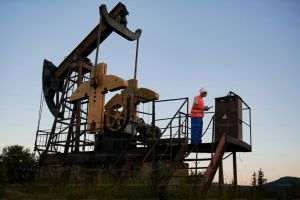In the context of the current economic and political tensions in Israel, generated in particular by the war with Hamas that began on October 7, 2023, the impact on Romania's economy is considerable, considering the close economic relations between the two countries. By the end of the first semester of 2024, the number of companies with Israeli shareholding registered by the National Trade Registry Office in Romania has increased to 4,404, compared to 1,640 companies in the previous year. However, only 3,807 of these companies were still active, the rest being dissolved, insolvent or with suspended activity. The increase in the number of companies is an indication of the intensification of Israeli capital migration, especially in fields such as IT, real estate and trade, fields strongly represented in Romania.
The most companies with Israeli capital are located in Bucharest (2,859) - which almost tripled the number of such companies compared to 2023 when only 983 companies with Israeli capital were operating - and Ilfov (486), which together add up to over 75% of all companies. Other counties with a significant presence of Israeli capital are Braşov (302 companies) and Iasi (129 companies). Conversely, counties such as Sălaj and Caraş-Severin do not register any companies with Israeli shareholders. This distribution reflects the preference of Israeli investors for the developed regions of Romania, where there is access to adequate resources and infrastructure.
• IT&C - field targeted by Israeli investors
A significant phenomenon affecting the Romanian economy is the migration of Israeli IT companies, determined to move their operations to Europe, especially Romania, as a result of internal instability in Israel. In the past year, according to Israeli media, many firms in that country have relocated their activities to protect their capital and continue to operate in more economically stable environments. Thus, Romania has become an attractive destination for these companies, which are looking for lower costs and a well-trained workforce in the technological field.
Israeli IT companies play a crucial role in Romania's economy, considering that this sector is one of the growth engines of the national economy. The migration of Israeli capital to the Romanian markets can accelerate the development of the Romanian IT sector, contributing to the creation of jobs and the improvement of the technological infrastructure. This trend also reflects a strategic shift of Israeli private capital away from local markets to the more stable markets of Central and Eastern Europe.
However, Israeli media reports that the state's high-tech sector continues to develop. Although investments in this sector decreased compared to 2022, Israeli startups managed to attract $6.9 billion by the end of 2023, which according to Tel Aviv experts consulted by the cited sources is a significant achievement, having given the multiple crises facing the country. In addition, international investors continued to support this sector, which underlines their confidence in Israel's ability to innovate and generate long-term economic growth, a fact also demonstrated by the increase in the value of shares of Israeli companies on the Tel-Aviv stock exchange, their value practically doubling in the last year, according to data published by the Jerusalem Post, Times of Israel and Calcalist websites. This fact demonstrates that foreign investors are still betting long-term on Israeli innovation and R&D in IT&C and related technology.
• Israeli investments in the defense industry and real estate in our country
The real estate sector in Romania has been one of the most attractive for Israeli investors in the last decade. Many of the big construction projects in Bucharest and other big cities are financed by Israeli investors. The current economic situation in Israel has led to a reassessment of risks, and capital outflows from Israel could have a positive impact, that is, it is possible to witness an increase in the flow of investments in Romanian real estate projects. According to journalists from Calcalist, although the real estate sector in Romania remains attractive, if the government in Tel Aviv decides to force Israeli investors to redirect their funds to cover domestic losses in Israel, there is a risk that withdrawals of capital to slow down the development of some major projects in our country.
Another field in which Israeli investors have strongly entered the market in our country is the defense industry. In addition to the contracts concluded in our country by the Israeli company Elbit Systems, it established a subsidiary in Romania, Elmet International SRL, who has also deals with activities related to the defense industry. Among the companies in the Israeli defense industry interested in moving part of their production to our country are, according to the cited sources, Israel Aerospace Industries and Rafael Advanced Defense Systems, the latter company proposing the opening of a factory in Romania to produce the defense system anti-aircraft Spyder, which would have a positive effect on the national economy regarding the export of armaments that would be achieved through that production capacity.
• Capital outflows from Israel boosted the S&P 500 by more than 134 billion shekels
Israel's economy, badly affected by the war, has slowed significantly, according to Calcalist and the Times of Israel. The IMF estimated a few days ago an economic growth of only 0.7% at the end of 2024, which represents a drastic drop from the previous forecast, from April, which predicted a growth of 1.6% for the Israeli economy. According to the data published by the cited sources, the inflation forecast for Israel in 2024 was increased by the IMF from 2.4% to 3.1% (above the target ceiling of 3% estimated by the Tel Aviv government), but with a peak of 3.4% expected at the end of the current year. As for the year 2025, the IMF predicts that the average inflation in Israel will be 3.1%, but at the end of the year (December 2025) it will decrease to 2.4%.
This slowdown is caused by major disruptions in the economy, increased military spending, and reduced domestic consumption and investment. In addition, Israeli pension funds and other financial institutions began to redirect their savings to international markets, especially the S&P 500. More than 50% of Israelis' savings were invested in foreign markets, indicating a loss of confidence in market stability internal. Israeli news site Globes.co.il states that over the past three years, the proportion of Israelis' long-term savings invested in the US index has risen from 1% to 8%. Until three years ago, the S&P 500 index, which includes the largest companies in the US, was where the Israeli stock market experts invested, channeling 1% of the total amount of money invested over the long term, that is 6 billion shekels. The cited source claims that subsequently tech workers and financially savvy youth have shifted their investments and savings to the S&P 500, and over the past three years, the total amount invested has increased from 6 billion shekels to 134 billion shekels, money which also includes investments made by pension funds, provident funds and advanced training funds, which amounts to 8% of the long-term financial assets of Israeli citizens.
According to a study by Leader Private Capital, cited by the Calcalist website, the value of private investment funds and direct investments increased by 15 billion shekels, or about 5%, between July 2023 and July 2024, reaching a total of 300 billion shekels, but 81% of these investments are directed to foreign funds. According to analysis by Index Research and Development, 75 billion shekels were invested in the Israeli pension market in the past year, of which 41 billion shekels were transferred to the S&P 500 index, while the remaining 37% went to managed financial instruments by portfolio managers in Israeli financial institutions.
• Equity outflow - a curse for Tel Aviv authorities, say financial experts in Israel
Yaniv Pagot, executive vice president and head of trading, indices and derivatives at the Tel Aviv Stock Exchange, told Globes.co.il that virtually one in four shekels goes to the S&P 500, while Yaron Dayagi of Index Research argues that those investments are not useful for all Israeli financial institutions. A source within Israeli financial institutions also told the quoted source that the risk of investing in the S&P 500 is greater for the Israeli economy than for the individual investor.
"For us, as an Israeli economy hungry for investment in Israeli companies, in the country's infrastructure and in local businesses, this exodus of investors is a curse. We are in a time where foreign investors hardly invest here and rightly so from their point of view; waiting for the situation in Israel to become clear. Private investment is the anchor of economic growth. If any individual investor or any Israeli financial institution sends their money abroad, then they are doing it in their own interest, and not in the common interest. If we don't invest in our country, there will be less money to fund the investments we need. If you look at the profile of economic growth forecasts, some of the estimates expect a recession of investments. However, the money for these investments must come either from the government or from private investors", said the quoted source.
In contrast, the real estate sector remains predominantly locally focused, while infrastructure investment is concentrated in projects in North America and Europe. If ten years ago 40% of institutional private investments were directed to Israeli funds, today this figure has dropped to less than 20%. Israeli high-tech is also feeling the effects of these changes, as one of the few sectors in which Israeli institutions have reduced their investments is venture capital and direct investments in companies (co-investments). Although the Israel Innovation Authority recently launched a new benefits program, institutional investors have been slow to return to venture capital funds, as the new plan focuses on improving positive returns rather than providing a safety net for losses .
This is also evident from the statistical data published on the Calcalist website, information that shows that in the third quarter of the current year, high-tech companies in Israel concluded 61 transactions with a total value of 938 million dollars. Experts consulted by the quoted source claim that this is the lowest number of capital raised in the last 7 years and the lowest number of transactions in the last decade.
• The sale of El Al's majority stake confirms the dire state of the Israeli economy
This capital migration is an indicator of economic instability in Israel and the need for financial institutions to find safer markets to protect their investments. This massive capital outflow may have long-term effects on Israel's ability to finance its own economy, especially in the context of a growing budget deficit and public debt expected to exceed 65% of GDP by 2025.
This phenomenon also affects Israel's ability to finance its own development projects and attract local investment. Capital flight creates a vicious circle where a lack of confidence in local markets discourages new investment, exacerbating economic problems.
Another symbol of Israel's economic difficulties is the plight of the national airline El Al. During the Gaza conflict, El Al became virtually a monopoly in the Israeli aviation market, as most international airlines suspended flights to Israel for security reasons. This monopoly position, while theoretically advantageous, further exposed the company's financial and management problems. El Al's majority owner, Eli Rosenberg, has sold his controlling stake for an estimated $1 billion, indicating a lack of confidence in the company's future and lingering economic difficulties. While this sale could bring a restructuring opportunity, El Al's future is uncertain. The temporary monopoly failed to solve the company's chronic financial problems, which faced strong international competition and a drop in travel demand during the conflict.
Even though Israel's economy is in a vulnerable position, affected by the military conflict and global economic turbulence, policymakers in Tel Aviv are optimistic about the strength of the technology sector and continued investment in infrastructure. Israel's economic future, however, depends to a large extent on the duration and intensity of the conflict with Hamas, on the government's ability to effectively manage the budget and public debt, and on maintaining the confidence of foreign investors, who by financing projects and supporting innovation could help rebuild the economy and job creation.

















































